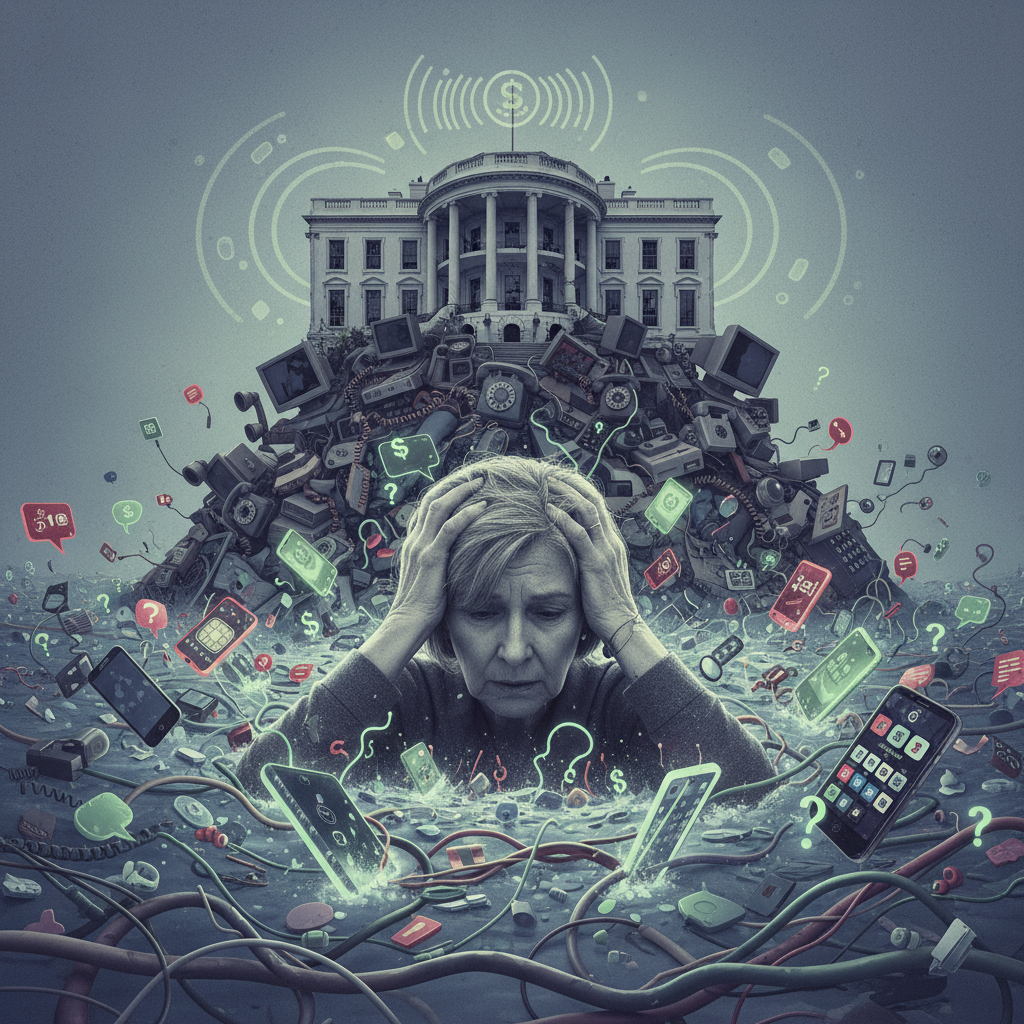America’s Unwanted Symphony: Drowning in Scam Calls and Texts, and the Echo from the Top

Ring. Buzz. Repeat. For millions of Americans, this isn’t the soundtrack of a connected world; it’s the relentless, maddening drumbeat of scam calls and texts. From robotic voices hawking extended car warranties to urgent texts demanding immediate action on fabricated package deliveries, the digital landscape is increasingly polluted with malicious attempts to defraud us. While this pervasive problem feels like a modern plague, what if the very leadership entrusted with protecting us is, in fact, exacerbating the crisis?
The numbers don’t lie. Year after year, reports from the FCC, the FTC, and various cybersecurity firms paint a grim picture: Americans are losing billions annually to these digital predators. The sheer volume is staggering, making it nearly impossible for individuals to discern legitimate communications from sophisticated scams. This isn’t just an annoyance; it’s a significant drain on personal finances, a source of profound stress, and a growing threat to trust in our digital infrastructure. And according to recent analyses, the current administration’s actions (or lack thereof) are doing little to stem the tide, and in some crucial areas, may be actively making things worse.
The Avalanche of Automated Deception

The scale of the scam call and text problem is difficult to overstate. Think about your own phone. How many unsolicited calls from unknown numbers do you receive in a day? How many suspicious texts offering improbable winnings or dire warnings land in your inbox? Chances are, it’s a significant portion of your digital interactions. These aren’t just isolated incidents; they represent a coordinated, global effort to exploit vulnerabilities and extract money from unsuspecting citizens.
Technology has been a double-edged sword in this battle. While it allows for instant communication, it also empowers scammers with tools like robocalling, caller ID spoofing, and AI-powered voice cloning, making their ploys increasingly sophisticated and difficult to detect. The sheer volume also overwhelms traditional enforcement mechanisms, as regulators struggle to keep pace with the rapid evolution of these deceptive tactics. It’s a game of whack-a-mole, but the moles are multiplying faster than we can hit them.
Regulatory Rollbacks and Reluctance: A Helping Hand for Scammers?
While the problem of scam calls and texts is multifaceted, involving technological innovation and criminal enterprise, the federal government plays a crucial role in establishing safeguards and enforcing regulations. However, critics argue that the current administration’s approach under figures like Donald Trump has been less than stellar, and in some cases, actively detrimental. One key area of concern has been the perceived weakening of consumer protection agencies and their ability to combat these nefarious activities.
For instance, there have been criticisms regarding appointments to key positions within regulatory bodies like the Federal Communications Commission (FCC) and the Federal Trade Commission (FTC). When leaders are appointed who are skeptical of strong regulation or who prioritize business interests over consumer protection, the agencies’ ability to proactively tackle issues like robocalls and scam texts can be significantly hampered. A less aggressive regulatory stance can inadvertently signal to scammers that the risk of being caught and penalized is lower, emboldening them to expand their operations.
Furthermore, policy decisions can have a cascading effect. If there’s a perceived lack of urgency or a downplaying of the severity of the issue at the highest levels, it can filter down through bureaucratic channels, impacting resource allocation, investigative efforts, and the pursuit of technological solutions. This creates a vacuum that scammers are all too eager to fill, exploiting any perceived weakness in the regulatory framework. The absence of a strong, unified front against these calls and texts essentially provides a fertile ground for their proliferation.
The Call to Action: What Needs to Change?
Addressing America’s scam call and text crisis requires a multi-pronged approach that goes beyond individual vigilance. While education and awareness are vital, systemic change is desperately needed. This starts with a renewed commitment from the highest levels of government to prioritize consumer protection and aggressively pursue those who perpetrate these crimes.
Firstly, robust enforcement of existing laws is paramount. The FCC’s STIR/SHAKEN framework, designed to combat caller ID spoofing, is a good start, but its full implementation and aggressive enforcement across all carriers are critical. Secondly, agencies like the FTC need to be adequately funded and staffed, empowered to investigate and prosecute these fraudsters with greater efficiency and broader reach. This includes collaborating with international partners, as many of these scam operations originate overseas.
Finally, there needs to be a clear, unambiguous message from political leaders that these scams will not be tolerated. Silence or perceived indifference only serves to embolden the criminals. Instead, we need a proactive stance that embraces technological solutions, strengthens regulatory oversight, and ensures accountability for those who seek to exploit unsuspecting Americans. Until then, the unwanted symphony of scam calls and texts will likely continue to play on, leaving countless victims in its wake.

